| August 3, 2017
|
In This Issue |
|
CWWA News
|
|
|
Member News
|
|
|
Federal Initiatives
|
|
|
National News
|
|
|
Provincial News
|
|
|
Standards News
|
|
|
CWWA Member Profiles
|
|
|
Upcoming Events
|
|
|
Snippings and Clippings
|
|
I know it’s summer and no one wants to think about November yet, but it’s time. Every year, CWWA members try to give me a heart attack by waiting until the last week to register for the National Conference. Stop doing that!
|
If St. John’s isn’t on your Canada150 bucket list it should be! This dynamic city is urban on the edge of nature, it offers a unique warmth and whimsy, with signature attractions and colour!
|
The 2016 National Water and Wastewater Conference was an enormous success, attracting over 500 delegates – including the utility leaders and managers that are critical to your business. With a small focused trade show component our event gives you amazing access to our delegates in a friendly, intimate setting.
|
The International Water Services Flushability Group has launched their website featuring updates on the collaborative international effort to develop and enforce standards for flushable products.
|
Do you want your community to be recognized as a sustainability leader? Nominate your municipality for FCM’s 2018 Sustainable Communities Awards! The awards celebrate the most innovative local sustainability projects from across the country.
At the urging of the Alliance for Water Efficiency (AWE) and other industry partners, the U.S. House of Representatives' Interior Appropriations Subcommittee, which oversees funding for the U.S. Environmental Protection Agency (EPA), has issued its Fiscal Year 2018 agency funding report rejecting the proposed elimination of the EPA's WaterSense® program–see pg. 58 of the report.
|
WaterTrax has joined forces with Aquatic Informatics, the global leaders in environmental data management. Together, our teams are stronger and better able to serve you with improved research, software development, IT, and customer service capabilities.
|
A new report from the Intact Centre on Climate Adaptation finds that leaving wetlands in their natural state could reduce the financial costs of flooding by nearly 40 per cent. In compiling the report, the Intact Centre compared the financial costs of a major flood event in urban and rural areas, where wetlands were left in their natural state, versus where a computer model simulated wetlands replacement with agricultural land use. The modeling showed that if a major fall flood were to occur, the financial costs of flooding in rural and urban areas would be 29 and 38 per cent lower, respectively, with wetlands in their natural state versus being lost due to development.
|

In celebration of Canada’s 150th the Centre for Affordable Water and Sanitation Technology (CAWST) invite Canadians to reflect on the source of their drinking water. Take a photo or tell a story about the source of your drinking water and post it to Twitter, Facebook or Instagram using both #H2OCanada and #CAWST.
Your image or story will appear on their website and you will be entered into our #H2OCanada contest.
Start posting now!
|
On June 15, 2017, the Standing Committee on Environment and Sustainable Development released its study on the Canadian Environmental Protection Act, 1999. Entitled Healthy Environment, Healthy Canadians, Healthy Economy: Strengthening the Canadian Environmental Protection Act, 1999, the report proposes to improve protections from chemicals of high concern by requiring industry to prove their safety prior to use.
|
On June 29, 2017, the federal government released a discussion paper (Environmental and Regulatory Reviews: Proposed Approach) outlining its proposed response to recommendations contained in four reports* released at the start of this year dealing with environmental impact assessment reforms
|
A Notice advising of the start of stakeholder consultations regarding proposed improvements to the Safe Drinking Water for First Nations Act was posted May 29, 2017. According to the government, the engagement will be used to help find long-term actions to ensure safe drinking water for residents of First Nations communities. First Nations are invited to share their views on the act, and to identify priorities going forward regarding safe drinking water and wastewater treatment.
|
On June 26, 2017, the federal Minister of Environment and Climate Change, Catherine McKenna, and Quebec’s Minister of Sustainable Development, the Environment and the Fight Against Climate Change, David Heurtel, announced that their governments intend to jointly invest $57.5 million over the next five years to implement the next stage of the St. Lawrence Action Plan 2011-2026. The partnership will enable 38 joint projects to be organized around the three priority issues that aim to protect the biodiversity of the St. Lawrence, ensure its sustainable use, and ensure the quality of its water.
|
Bill 141, a Private Member’s Bill to address the public reporting of sewage bypassing was carried at 1st Reading on May 31, 2017. Under the Bill, the Ontario Water Resources Act would be amended to require municipalities that own or operate a water treatment facility, or persons who operate such a facility under an agreement with or with the consent of a municipality, to report certain information to the Ministry in cases where they divert sewage into waters that may impair its quality. The Bill further requires the Ministry to publish this information.
|
IWA TC224 is starting work towards developing water loss management standards. If you are interested in receiving updates and learning more about the standard and participation contact Duncan Ellison
|
ADS Canada: Your Total Solutions Provider At Advanced Drainage Systems (ADS Canada), we develop state-of-the-art products and services that help solve storm water management and sanitary sewer challenges, while setting industry-wide standards for quality, durability and performance.
|
 The Utilities department at Public Works manages our potable water distribution, wastewater collection and storm water management systems through out the City of St. Albert. They also provide service to residents for refuse, compost and recycling collection.
|
Towards Asset Management Excellence Mark Your Calendars to Continuing your Journey Back by popular demand, The Canadian Institute’s Infrastructure Asset Management returns for its second year to Toronto on October 25-26, 2017! Download your copy of the program to see the exciting line-up of speakers and the unique learning sessions. Register today and take advantage of your CNAM discount to get your seat at the table with municipalities small, medium and large. View our program and reserve your place today!
Browse our calendar of CWWA member and partner events.
|
NACWA website NACWA participated in a July 10 press conference organized by Eleanor Holmes Norton (D-DC), the District of Columbia’s non-voting member in the House of Representatives, to defend local DC laws from being blocked or overturned by riders added to the Fiscal Year 2018 appropriations bill.
|
wateronline.com Flint is coming under legal fire from the state of Michigan for delaying a decision on its drinking water source.
|
wateronline.com Washington D.C. will begin cracking down on flushable wipes next year in an effort that could lead other states to regulate the pesky products. "Starting next year, companies that make wet wipes sold in the District must prove that products labeled ‘flushable’ won’t damage the pipes. Otherwise, the package must make it clear that flushing the wipes is a no-no," The Washington Post reported.
|
From startup to scale up, WaterTAP is helping Ontario’s water tech companies grow. As our recently released 2016-2017 annual report indicates, WaterTAP has been working hard to ensure that Ontario’s water innovation ecosystem continues to thrive.
|
Water Canada $6.5 million for wastewater and stormwater will go to Pilot Butte, Sask., and stated the need for integrated infrastructure responses...
|
Water Canada Calgary’s Organics Composting Facility has achieved substantial completion and will divert dewatered biosolids from one of the city’s wastewater treatment facilities. Maple Reinders announced that on June 29th, the Chinook Resource Management Group, a special purpose company of which Maple Reinders PPP Ltd. is a partner, achieved substantial completion on time and on budget for the Source Separated Organics (SSO) and Class A Biosolids in-vessel composting facility. This project was delivered under a Design-Build-Finance-Operate-Maintain (DBFOM) Public-Private Partnership (P3) model.
|
Water Canada On June 28th, Tay Township, Ontario, held a ribbon-cutting ceremony to acknowledge the completion of upgrades to the Victoria Harbour Wastewater Treatment Plant. Construction began in May, 2016, and wrapped up this month, marking the first significant upgrade to the Victoria Harbour Wastewater Treatment Plant since it was originally constructed in 1982.
|
Water Canada After its June 29th meeting, York Regional Council of Ontario has announced a number of energy consumption successes, including reductions to its wastewater inflow and infiltration volumes that make for a total of 29 per cent of its 2031 reduction target.
|
Water Canada On May 31, the Sewage Bypass Reporting Act, 2017 passed first reading in the Ontario Legislature. The bill amends the Ontario Water...
|
CBC News The Trump administration will soon begin a review that will question the veracity of the climate change science used by President Barack Obama's administration as the basis for environmental regulations.
|
Water Canada The Region of Peel’s Regional Council adopted a new Corporate Social Responsibility Strategy this week that sets objectives...
|
|
| |
|




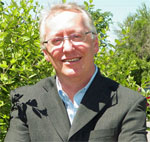
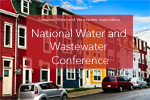

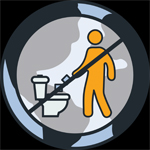

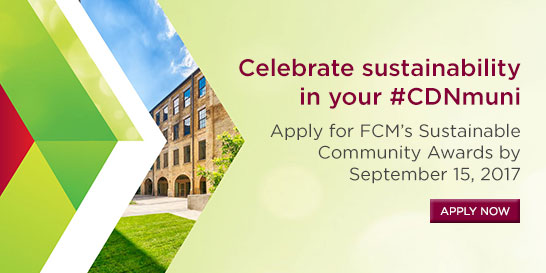


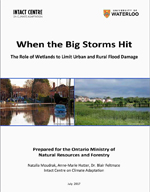

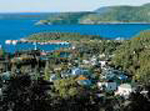
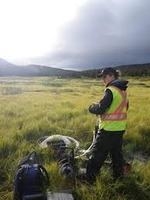
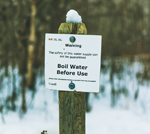

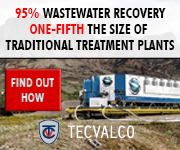
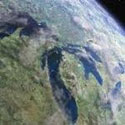
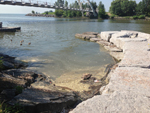


 The Utilities department at Public Works manages our potable water distribution, wastewater collection and storm water management systems through out the City of St. Albert. They also provide service to residents for refuse, compost and recycling collection.
The Utilities department at Public Works manages our potable water distribution, wastewater collection and storm water management systems through out the City of St. Albert. They also provide service to residents for refuse, compost and recycling collection.

